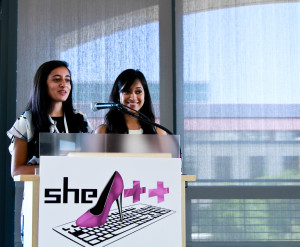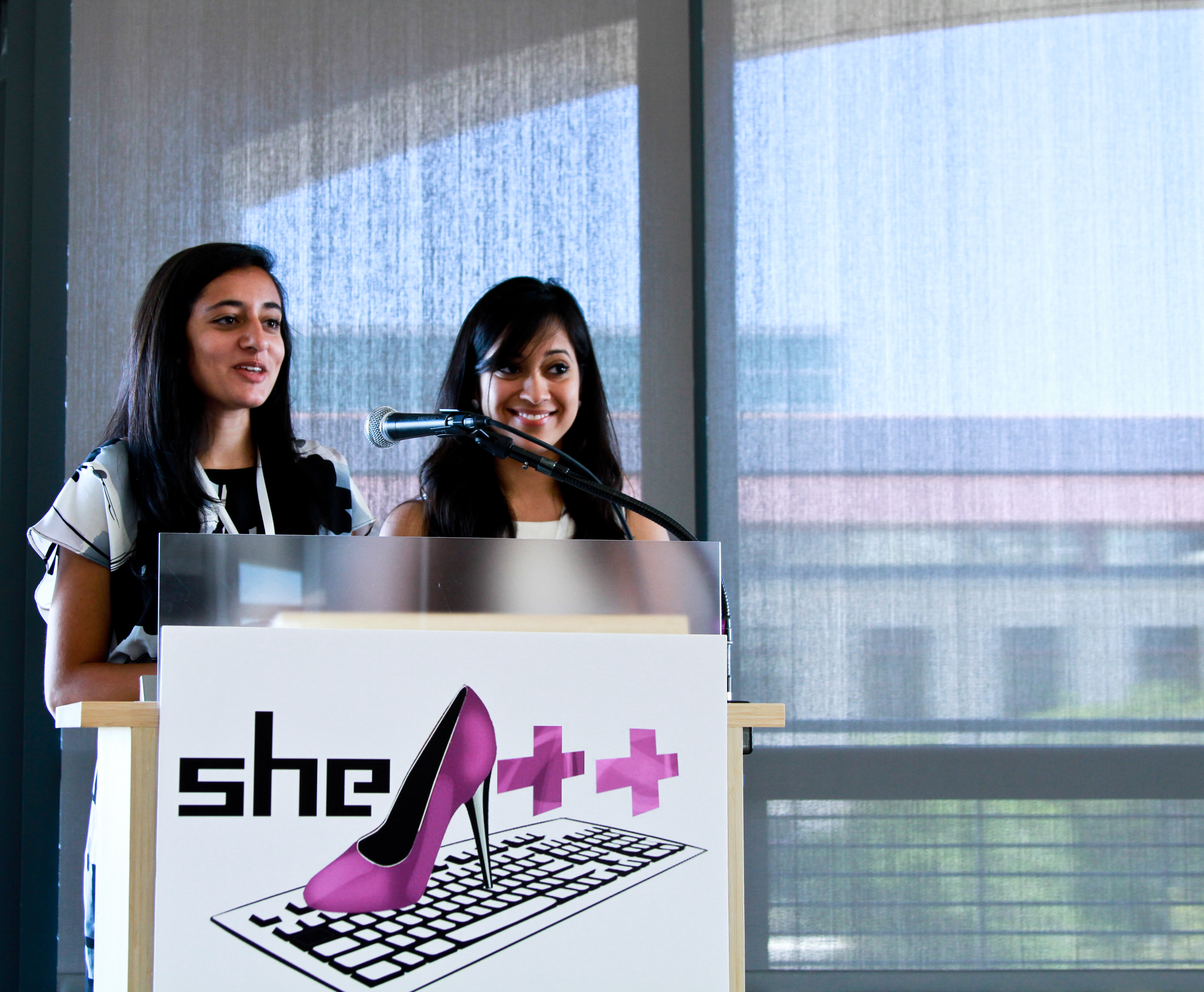When Ayna Agarwal ’14 and Ellora Israni ’14 enrolled at Stanford, studying computer science was the furthest thing from their minds.
“Even though I grew up in Silicon Valley, I never thought computer science was for me, because I never saw anyone who looked like me doing it,” Israni said.

After taking introductory computer science classes, however, Agarwal and Israni were hooked. In April 2012, they hosted she++, Stanford’s first conference for women in technology, with 11 female speakers from companies including Dropbox, Google and Pinterest.
Since then, she++ has grown exponentially, developing into a nationwide community that has been featured in Forbes, TechCrunch and The Huffington Post. This spring, she++ will release a documentary, launch a mentorship program and host its second annual conference, which will be free for Stanford and high school students.
“We’re really trying to show you what it means to be a woman in technology,” Israni said.
The 12-minute documentary, which includes interviews with Stanford students, alumni and professors, will be released on April 1, and Agarwal and Israni will host a special screening at Cubberley Auditorium on April 3. The film’s trailer, which was uploaded to YouTube two weeks ago, has collected more than 15,000 views.
Agarwal and Israni said that they had been inspired to produce the documentary after noticing a trend in the demographics of their upper-level computer science courses.
“We saw that in the progression of computer science classes, the number of women really decreased,” Agarwal said. “We wondered why there was no conversation about this.”
The documentary pieces together footage from the first she++ conference with interviews from students and experts in the field of computer science, including Jocelyn Goldfein ’97, Facebook’s director of engineering, Sandy Jen ’03, a co-founder and the Chief Technology Officer of Meebo, and Shubha Nabar M.S. ’05 Ph.D. ’08, a senior data scientist at LinkedIn.
Sophia Westwood ’13, a computer science major who was featured in the documentary, said that many young women avoid computer science because they mistakenly believe that it is “not very social, not very creative and not the most exciting.”
Westwood said that these misconceptions are harmful, as they prevent parity in the field and exclude women from the opportunity to learn a skill that is becoming crucial in today’s technology-based world.
“Being able to code is becoming similar to having the ability to read or write,” Westwood said. “Everybody needs to have a voice in shaping technology, and the way you have a voice is by having a computer science background.”
To incorporate male perspectives on the topic, Agarwal and Israni interviewed Professor of Computer Science Eric Roberts and Keith Schwarz ’11 M.S. ’11, a lecturer in the computer science department.
Roberts commented that he has personally seen the “barriers to women entering computer science” at Stanford. According to Roberts, while CS106A has near gender parity, women often take the class later in their Stanford careers, when they may have already decided on a course of study and will therefore be less likely to pursue a degree in computer science.
While Israni and Agarwal hope to inspire more female students at Stanford to study computer science, they have also reached out to women of all ages across the country. In what Agarwal referred to as a “call to action” at the end of the documentary, viewers are encouraged to sign up for she++’s new mentoring program, which will be launched this month.
Agarwal and Israni have contacted female computer science students at 15 schools around the country to serve as mentors for the program.
“We realize that so many other organizations are doing a great job in designing distance learning curricula and workshops where people can learn to code,” Agarwal said. “We are simply pointing them in the direction of those organizations.”
